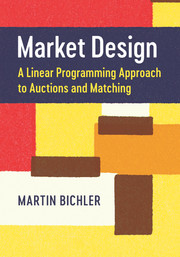Global
Kidney Exchange (GKE) was presented last week
in the executive session of the World Health Organization (WHO), the UN agency concerned with public
health policy.
Among the
Statements submitted by Member States and other participants of the 142th session of the Executive Board was this
Statement from Italy,
which encourages
the WHO to include in the 2019-2023 program the development of kidney transplantation in low and middle income countries through cooperation, assistance and
GKE, and proposes that the WHO should consider and implement a pilot project GKE program.
Here's the statement in full (points 6-10 are the action items):
Statement from Italy
Italy fully aligns with the statement carried out by Malta on behalf of European Union and its Member States.
Italy commends the DG and the Secretariat for the refined version of the Draft General Programme.
In particular Italy appreciates the additional attention given to migrants’ health in the new version of the programme of work.
In this session we would like to echo Spain’s remark and raise the EB and Member States’ attention to the problem of kidney transplantation globally.
In the past and in the current draft programme considerable attention has been correctly paid by WHO to TB, HIV and malaria,
However:
1. According to reliable international data, 2-7 million people die annually from kidney failure - more than from TB, HIV, and malaria combined. Transplantation is by far the most cost-effective treatment for kidney failure, particularly in low/middle income countries (LMIC)
2. Non-communicable diseases such as heart disease, diabetes, and kidney disease have replaced communicable diseases as the most common causes of premature death worldwide. An estimated 80% of this burden occurs in LMIC.
3. Billions of dollars are spent in LMIC to reduce the burden of communicable diseases, but significantly less is spent on non-communicable diseases. Consequently, the gap in healthcare between High Income Countries (HIC) and LMIC has become particularly large for noncommunicable diseases such as kidney failure.
4. Transplantation is preferable to dialysis as a treatment for kidney failure. Transplant patients live on average 10 years longer, and have better quality of life than those on dialysis. In some LMIC, as many as 75% of patients who start dialysis die within one year. Moreover, transplantation is much less expensive than dialysis over time. This is very much limited by the limited availability of organs that can be addressed with kidney exchange.
5. Kidney exchange extends the reach of living donation because some healthy living donors are not able to give a kidney to a loved one for reasons outside of their control. However, they could exchange their kidney with another such pair so that both patients are able to receive a living donor kidney transplant. Kidney exchange is practiced routinely in HIC and preliminary clinical experience indicates it could be expanded globally to increase access to living donor kidney
transplantation. Kidney exchange is equitable, mutually beneficial, and has been carefully developed to be ethical, legal, and transparent.
6. We encourage WHO to include organs and in particular kidney transplantation in its programme as we believe that oversight, cooperation and assistance of the WHO to carry out a pilot program with strong international governance that is consistent with the highest ethical and legal standards, and that carefully approves participating countries, facilities, healthcare providers, and patient-donor pairs should be conceived and implemented.
7. Given that transplantation is more cost effective than dialysis, the savings attained in HIC from transplantation affords LMIC patients the opportunity to participate in kidney exchanges with HIC patients. We refer to this as Global Kidney Exchange (GKE).

8. Consider the figure: the LMIC mother wishes to donate to her daughter, and the HIC brother wishes to donate to his sister, but neither pair is able to proceed. Without transplantation, the LMIC daughter will die and the HIC sister will remain on dialysis. However, through GKE each patient receives a compatible kidney from the other patient’s donor. Furthermore, the savings attained in the HIC can also support long-term care of the LMIC donor and recipient in their home country.
9. Preliminary clinical experience in a small sample of exchanges between LMIC and HIC pairs has achieved 100% patient and graft survival as well as donor safety with up to 3 years of follow-up.
10. The pilot program would establish a technical working group to develop a self-sustaining and scalable GKE program that will:
a. Execute planning meetings to carefully develop the criteria for participating countries, physicians and patient-donor pairs;
b. Design, create, and implement an international governance protocol; and
c. Perform and test Global Kidney Exchanges.
******************
Here's a link to the whole meeting:
22 January 2018 – This week the WHO Executive Board is setting the agenda for the World Health Assembly, and determining how to best promote health, keep the world safe, and serve the vulnerable. The session takes place on
22–27 January 2018 in Geneva, Switzerland.
Update: you can watch the Italian representative,
Professor Walter Ricciardi, deliver the statement in the live webcast, afternoon session part 2 (in the links on the right), at minute 57 for about 3 minutes.
********************
Here are all my
posts on GKE, which tell of its clinical success so far, and of some highly politicized opposition that it attracted. However as transplant professionals have had an opportunity to hear directly about the proposal, calmer, more practical discussions are taking place, and GKE is gaining support. This most recent recommendation from Italy to the WHO seems like a responsible way to move forward.
I support the call for action in point 10 of the Statement of Italy, and I think that the need to establish careful rules around the issues included in point 6 are well considered. I'm cautiously optimistic that this will mark a turning point towards practical, evidence-based exploration of ways to extend the very considerable benefits of kidney exchange, transparently, ethically, and without undue delay.
*********
(Here are some
pictures from our meeting in Rome, two weeks ago...)











